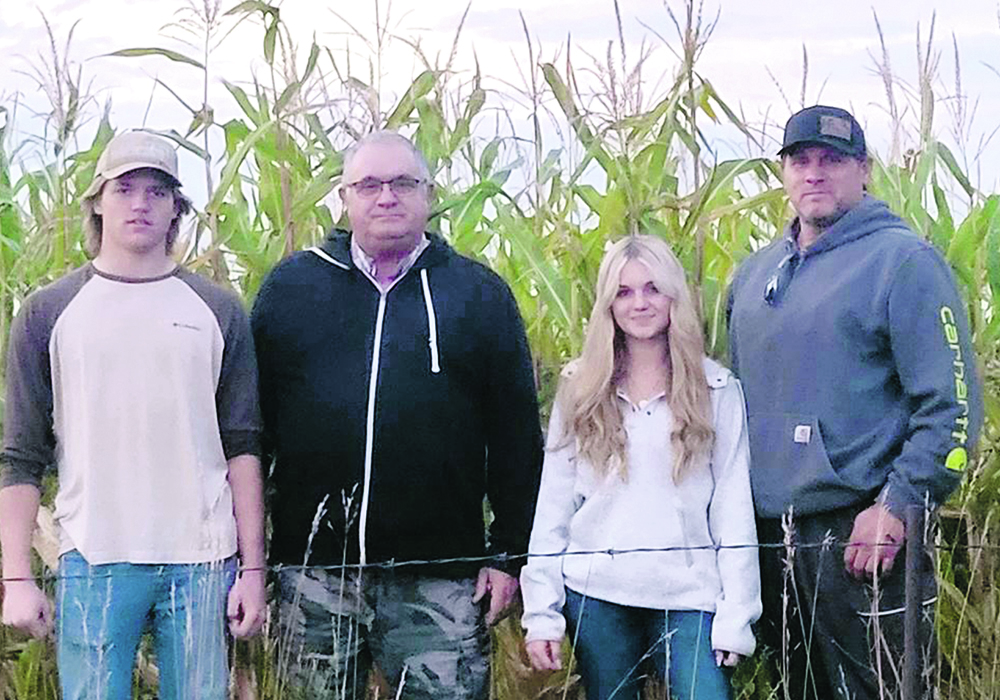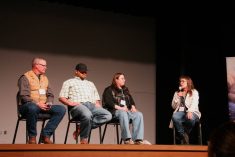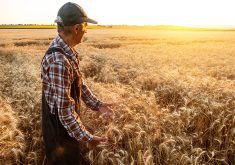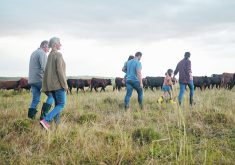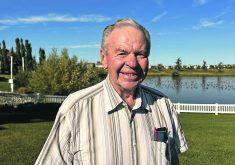Seidlitz family knows it will be important to put plans down in writing if next generation wants to carry on the operation
BETHUNE, Sask. — The Seidlitz family seems to reach back more than one generation for land transfers.
Henry Seidlitz bought his farmland from his grandmother and Henry’s son, Bill, bought his farmland from his grandfather.
“I am not sure what will happen for the next generation. It has worked well up to now. I don’t know if it will repeat for the third time,” said Henry.
“I don’t want to force my grandchildren to be farmers, but one of them might want to buy my land and hopefully they would get the same break as my grandmother gave me. I got it at a reasonable price and she lived a fairly good life.”
“It is up to my grandchildren to make that decision. If they make that decision, it will be more imperative to put some of those things down on paper and make it more concrete. If I am financially able, I hope I would give one a financial break to start farming themself.
“Now, with the price of equipment, it’s hard for a young person to start farming themselves,” said Henry, 72, one of seven generations of Seidlitz named Henry.
“I don’t know what Henry the eighth will be like.”
The Seidlitz family has farmed in the Bethune area since Henry’s grandfather came from Germany in 1895 at 14 before beginning to farm in 1919.
Over the years, Henry’s grandfather acquired a large block of 23 quarters of land near Last Mountain Lake, north of Regina.
Henry’s grandfather died in 1946, leaving two young sons. His grandmother took over running the farm, with the help of hired men.
“My grandmother was the brains behind the farm. She controlled the farm and the purse strings. She had two rules: never buy anything frivolous and you never borrow money unless it is a large capital expenditure,” said Henry, who also lived by those rules when he farmed.
“I was raised by my grandmother. Most of my values are from a generation older than I am.”
When his grandmother retired to Regina, the farm was divided into thirds and sold to Henry, his brother and his father.
“I think each generation has to have skin in the game. It doesn’t mean anything until it affects your livelihood,” said Henry, who added his father owned none of the land he worked for most of his life because the grandmother controlled it.
“I bought my land from my grandmother. I never encouraged my children to be farmers. I felt it was a good way to make a living and a good way to raise a family.
“I have four children and one of them farms. That creates a dilemma for me. Should the one that farms get the benefit and what should I put in my estate for the other three children?”
Henry’s life was not just on the farm, but with added income and interests from his activities as a school trustee, Saskatchewan Wheat Pool delegate and director, school bus driver and instructor.
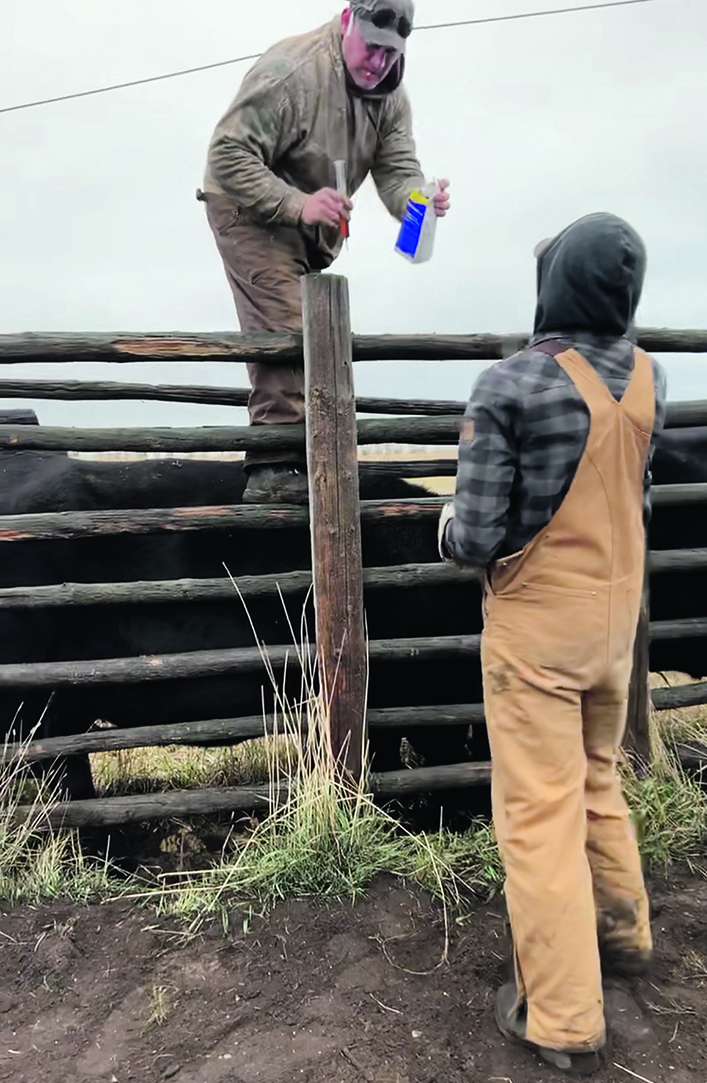
“I did things that were important to my community and important to me and still kept the farm going.”
Over the years, the farm was mainly a mixed grain and livestock operation.
In 1998, most of the land was seeded back to grass and became solely a livestock operation. Under Bill’s direction, the farm went from 90 to 250 cows.
About 15 years ago, they sold most of the livestock herd and rented all but a couple quarters. Bill wanted to downsize and spend time with his wife and children.
“I figured when they were young, I might as well spend time with them when I could. Now there are about 50 cows and it is a slower pace of life. I don’t spend all summer making hay and can spend more time with my wife and kids during the summer,” said Bill.
During spring seeding and fall harvest, Bill helps a friend and looks after his own cattle. Whether his son or daughter want to take over the farm is undecided.
“There is lots of time for farm succession planning. You never know when your time is up and maybe some of these things should be written down. If my wife and I die, the land would go to the kids and they could rent it out and receive money that way. It is eventually going to go to them. Whether they end up farming, it is up to them.”

